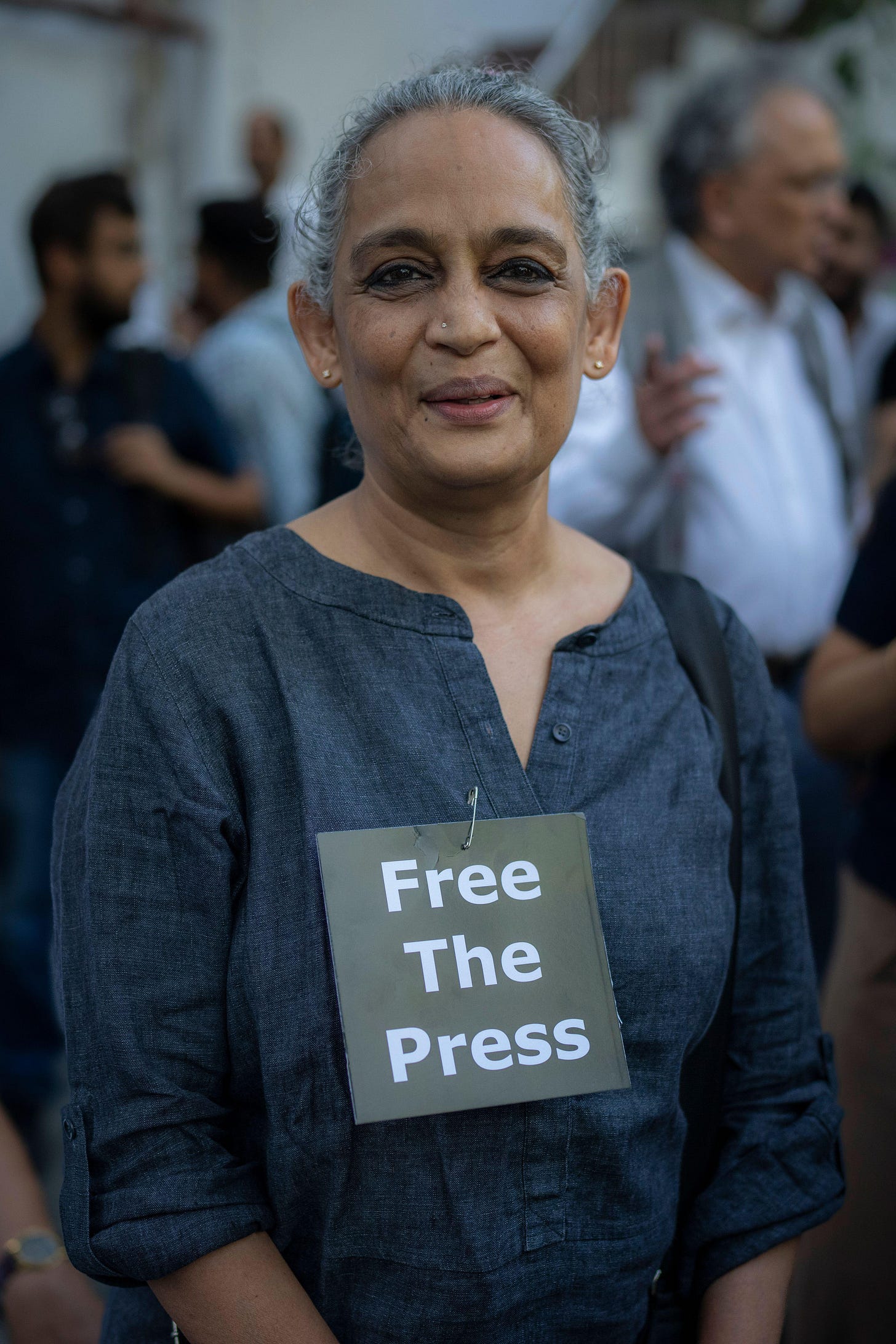Arundhati Roy: The Light That Never Fades
BJ Sadiq examines the motives behind Narendra Modi's hounding of the great writer and activist.

To a foreign visitor, India is a rising power. On the streets of Delhi, of Mumbai, of other metropolises, you do see that flashing modishness; that air of earned prosperity. In fact, its economy is likely to surpass that of Japan and Germany by 2030; a mighty feat. It already boasts of becoming the world’s fifth largest economy. But underneath this lava of progress, lies the demi-monde of the Hindu right, which has led to a steep rise in the policing of free speech, and in ways that are demonically antediluvian.
India’s democracy is missing its vintage soul, wholly empty of the old-world diversity and ethnic tolerance that the legendary Booker Prize-winning Indian novelist Arundhati Roy grew up with, and which she so heartbreakingly mourns. Roy has spent over two decades railing, with inspiring constancy, against the present realities of her country, and never shies away from calling India a highly policed and a theocratic Hindu state.
Roy’s crusade is often seen as a bold provocation to Narendra Modi, India’s present Prime Minister, which it clearly is.
Earlier this month, on 3 October, the Delhi police probed reporters of the news website NewsClick, famous for its independent journalism, and rounded up its founder Prabir Purkayastha, among others. As a consequence nationwide protests broke out. The Delhi Police justified its actions by claiming that the website received Chinese funds and supported an “Anti India Agenda”. The very next day, a stream of disgruntled journalists and free speech activists gathered outside the press club in Delhi, full of unquenchable idealism and cleaving to a common cause.


